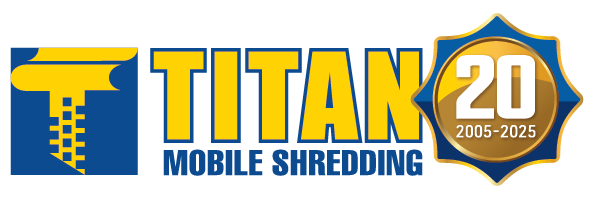Simple Guidelines for Shred Versus Save
Tax season is just around the corner—have you started getting your documents in order? Whether you file your own taxes or depend on an accountant or agency, there are no shortcuts for the paperwork that this process entails. While you spend hours in meticulously organizing the relevant documents, don’t forget to exercise abundant caution in protecting your personal or financial information. Due to the innumerable instances of IRS scams and identity theft in recent years, safeguarding your information from fraudsters and cybercriminals should be your number one priority during the tax season.
Safe Record Management during Tax Season and Beyond
Usually, you need to retain tax related receipts, cancelled checks, W-2s, and deductions related supporting documents for a period of 7 years. However, there are several other documents that you may not need to preserve for that long. For example:
Shred Immediately: ATM receipts, paid credit card statements, paid utility bills, non-tax related cancelled checks, or expired. Also shred credit card mailers, or credit offers, such as pre-approved cards that you are not going to use.
Shred 1 year after Filing Taxes: Medical bills, bank statements, and other bills that you used during the tax filing process. Shred pay stubs after verifying your W-2 forms to ensure that there are no discrepancies.
Shred when Irrelevant: Certain documents may lose relevance at varying intervals, and you may have to hold on to them for different lengths of time. For example:
- Retain titles and contracts for your vehicles as long as you own or lease them.
- Keep your home deeds until such time as you own the property, and home improvement receipts until you pay any applicable capital gains tax on sale of property.
- Don’t shred disputed medical bills until the issue is resolved.
Save Forever: Some documents require eternal preservation. Take all the necessary precautions to keep them in a safe place, under lock and key, and encrypt any digital copies of these records.
- Birth, adoption and death certificates
- Marriage or divorce decrees
- Social security cards
- Citizenship papers
- Passport
- Tax returns
- Will
This is not an exhaustive list, and there may be several other types of documents that you may have to save or shred depending on their use and relevance.
Combatting Tax Related Fraud
Most tax related frauds occur when hackers or thieves get access to your Social Security number and claim fraudulent returns. Thanks to efforts by the IRS to sensitize the general public about prevalent risks and scams, in recent years, there has been almost a 40% decline in tax-related identity theft. However, even the slightest misstep in protecting your information would mean you could be the next victim. Hence, in addition to safeguarding your paper records, it is important to:
- Strengthen the security of your electronic devices and records by using firewalls, anti-spam and anti-virus software and tools, and proper encryption.
- Don’t give out any personal details over the phone or email, unless you are sure that you are dealing with an authentic IRS query and official.
- Watch out for duplicate returns filed on your behalf, or notices informing you that additional taxes are payable.
For secure disposal of paper records, rely on the convenient residential services offered by TITAN Mobile Shredding. You can choose one of our multiple residential shredding options. We can also safely destroy your electronic records, including DVDs, CDs, hard drives, and other digital media at our secure plant in Pipersville, PA.
Address your physical and digital media shredding needs through a professional, NAID AAA Certifiedcompany, such as TITAN Mobile Shredding. Call us at (866) 848-2699 or contact us online to know more about our robust and reliable shredding services.



